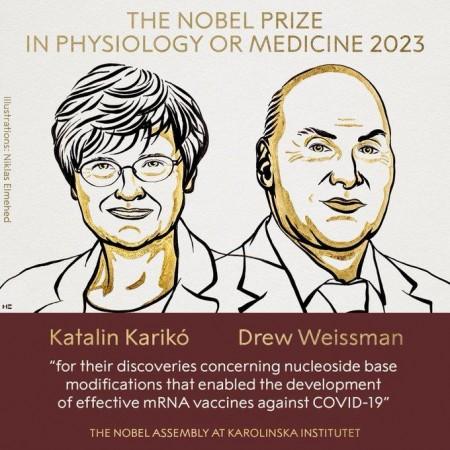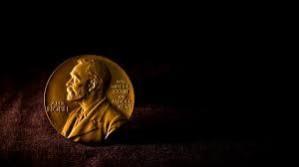Katalin Kariko and Drew Weissman have been jointly awarded the 2023 Nobel Prize in Physiology or Medicine for their discovery of mRNA vax against Covid-19.
They received the honor "for their discoveries concerning nucleoside base modifications that enabled the development of effective mRNA vaccines against Covid-19", said the Nobel Assembly at the Karolinska Institutet in a statement.
Their groundbreaking findings have fundamentally changed the understanding of how mRNA interacts with our immune system, the Nobel committee said.
Interest in mRNA technology began to pick up, and in 2010, several companies were working on developing the method.
Vaccines against Zika virus and MERS-CoV were pursued; the latter is closely related to SARS-CoV-2.
After the outbreak of the Covid-19 pandemic in early 2020, two base-modified mRNA vaccines encoding the SARS-CoV-2 surface protein were developed at record speed.
Protective effects of around 95 per cent were reported, and both vaccines were approved as early as December 2020.
"The Laureates contributed to the unprecedented rate of vaccine development during one of the greatest threats to human health in modern times," the Committee said.

Kariko was born in 1955 in Szolnok, Hungary. She received her PhD from Szeged's University in 1982 and performed postdoctoral research at the Hungarian Academy of Sciences in Szeged until 1985.
In 1989, she was appointed Assistant Professor at the University of Pennsylvania, where she remained until 2013. After that, she became vice president and later senior vice president at BioNTech RNA Pharmaceuticals.

Since 2021, she has been a Professor at Szeged University and an Adjunct Professor at Perelman School of Medicine at the University of Pennsylvania.
Weissman was born in 1959 in Lexington, Massachusetts. He received his MD, PhD degrees from Boston University in 1987.
He did his clinical training at Beth Israel Deaconess Medical Center at Harvard Medical School and postdoctoral research at the National Institutes of Health.
In 1997, Weissman established his research group at the Perelman School of Medicine at the University of Pennsylvania.
(With inputs from IANS)









!['Had denied Housefull franchise as they wanted me to wear a bikini': Tia Bajpai on turning down bold scripts [Exclusive]](https://data1.ibtimes.co.in/en/full/806605/had-denied-housefull-franchise-they-wanted-me-wear-bikini-tia-bajpai-turning-down-bold.png?w=220&h=138)



